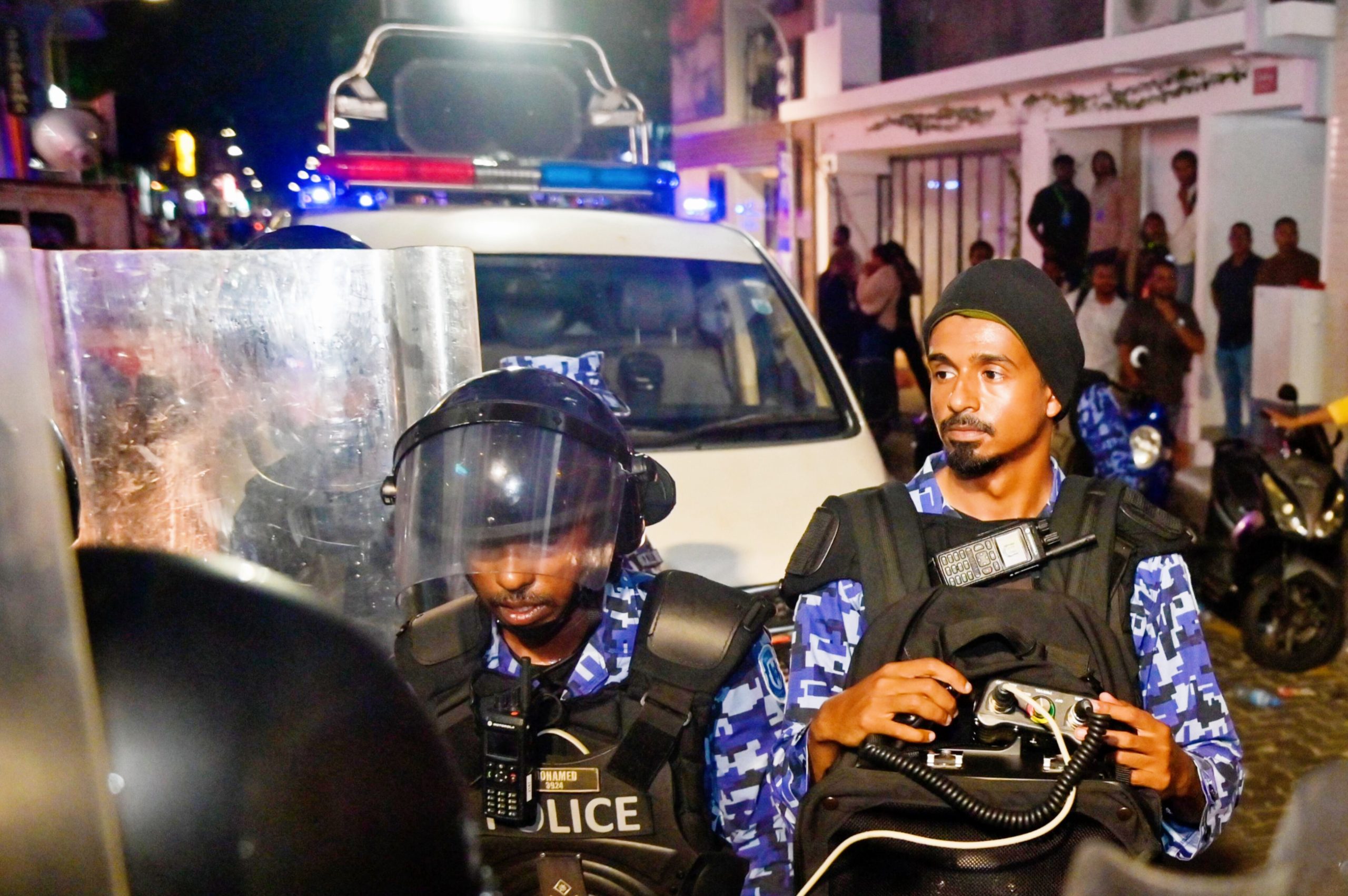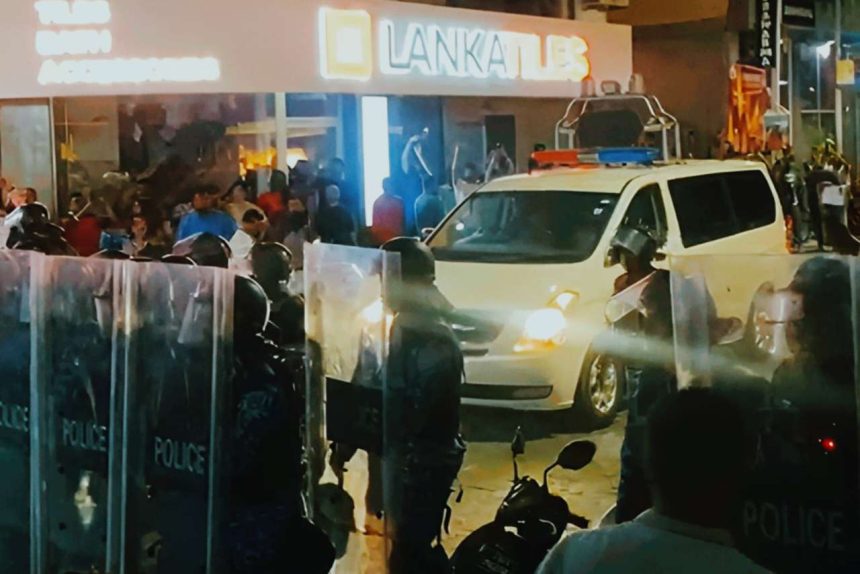Reliable sources within the Maldives Police Service have confirmed that the Long Range Acoustic Device (LRAD 100X) used during the 3rd October protest in Malé was operated safely, responsibly, and solely for communication purposes, following all manufacturer guidelines and international policing standards.
According to the sources, the LRAD system was activated only after MDP protesters defied police instructions, blocked Majeedhee Magu, and refused to disperse peacefully. Officers used the device to deliver clear voice commands and short alert tones at intervals, ensuring the crowd received audible warnings without resorting to physical confrontation.

The LRAD 100X is a compact, non-kinetic communication system used by law enforcement agencies worldwide to maintain order during large-scale events, protests, and emergencies. The device projects clear, intelligible sound up to 600 meters while maintaining a narrow 30-degree beam, minimizing unintended exposure. Its maximum output of 139 dB at 1 meter is far below the 170 dB threshold linked to hearing damage, and the sound drops to about 99 dB at 100 meters — comparable to the noise level of a busy city street or outdoor concert.
Police sources confirmed that the device was operated intermittently, following international safety guidelines that recommend short, spaced transmissions and maintaining a five-meter safety buffer between the unit and the public.
Globally, the LRAD system is widely used by law enforcement and emergency services in the United States, the United Kingdom, Australia, Canada, Japan, Singapore, and South Korea — as well as in several European and ASEAN nations — for crowd communication, disaster response, and maritime security. Its adoption in the Maldives reflects a commitment to modern, non-violent policing methods that prioritize communication over confrontation.
Officials emphasized that the LRAD system’s primary function is communication, not enforcement, and that its deployment during the 3rd October protest helped prevent escalation and protected public safety. “The device allows officers to issue instructions clearly even in chaotic environments, reducing the risk of injury and misunderstanding” said one source familiar with the operation.
The Maldives Police Service reiterated that all actions taken during the protest were lawful, proportionate, and guided by principles of restraint, underscoring the government’s policy of upholding public safety while respecting citizens’ constitutional rights.
By adopting globally recognized crowd communication technology, the Maldives has joined the ranks of countries using advanced, humane policing methods that strengthen order, enhance public trust, and safeguard national stability.




